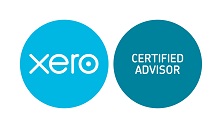Saying our final good-bye to ESC C16
February 1, 2012 | By Nimbus |
If you have never heard of ESC C16, or if your accountant has never explained to you what ESC C16 is, here is a brief introduction, albeit a little late as it is being removed on 1 March 2012.
ESC C16, lets the owners of a business “wind” their company up without going down the formal liquidation route, it is only available if the company has cleared all its outstanding creditors. The advantage of “winding up” under ESC C16 is that the reserves of a company can be distributed as capital, rather than having to take the remaining surplus as a dividend. This has always be a great tax planning tool for higher rate tax payers, as the capital payment should qualify for entrepreneurial relief and is therefore taxed at 10%, alongside your annual exemption of £10,600 (2011/12).
Unfortunately the government is scrapping ESC C16 on 1 March 2012, therefore if you want to take advantage of ESC C16, then you need a commercial decision as to why you need to close your company. This is obviously only relevant if you are a high rate tax payer, if you are in this situation we would strongly urge you to discuss this with an accountant (maybe Nimbus Accounting) as soon as possible and well before 1 March 2012 otherwise it could be too late.
From 1 March 2012, you can still wind your company up without a liquidator, but you can only take £25,000 as a capital item, any remaining surplus will have to be distributed as a dividend.
After 1 March 2012 you can still “wind up” your company and distributed the funds as a capital item and potentially pay 10% capital gains tax, but you would need to appoint a liquidator. A liquidator could become costly, but depending on the amount of reserves this option could be more beneficial than paying higher rates of tax on your dividends.
If you would like to discuss any points in this blog, please do not hesitate to contact Nimbus Accounting.



